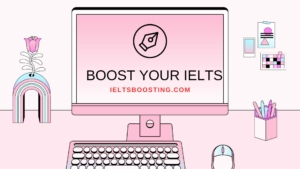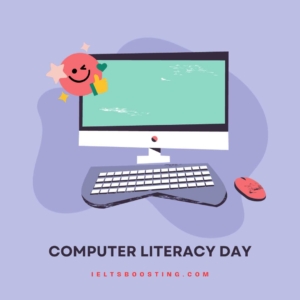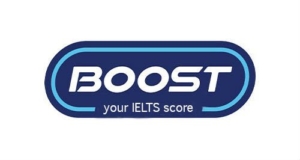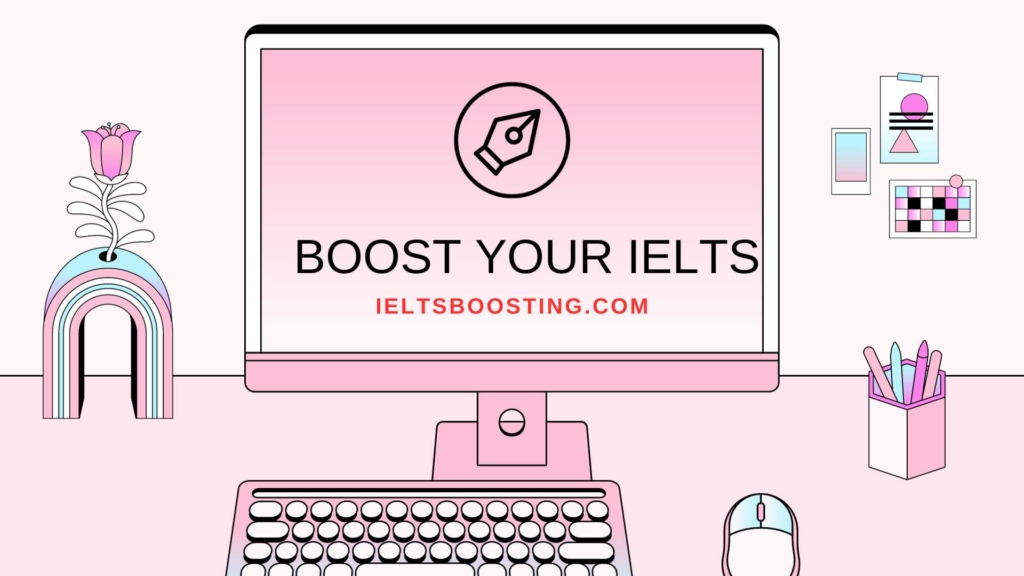Describe a time when you had a problem with using the computer
ielts speaking part 2 computer-You should say:
when it happened
where it happened
what the problem was
and explain how you solved the problem at last.

a problem with using the computer
Sample for Describe a time when you had a problem with using the computer
About 15 years ago, when I was still a student, I had a rather frustrating experience with a computer issue. I was working on a PowerPoint presentation for a Japanese club event scheduled for the following day with an old computer receiving from my foster father. Little did I know that this seemingly generous gesture would lead to a significant problem.
I had invested a lot of time and effort into creating the perfect presentation, and I was just about to save my work when the computer suddenly froze.
I tried everything I knew to resolve the issue, from pressing keys randomly to using mouse to save the file, but without success. I was feeling helpless, frustrated, and increasingly stressed as time passed.
After a few failed attempts, I turned to my smartphone and began searching for solutions online. I finally stumbled upon a potential solution that involved accessing a backup folder on the computer. However, it required a level of technical expertise that I simply didn’t possess at the time.
With no other options left, I made a tough decision. I decided to start the entire PowerPoint presentation from scratch. It was a painstaking process, and I had to work through the night until 5 am to recreate the entire presentation.
Looking back, it was a challenging experience, but it taught me the importance of regularly backing up my work and the value of perseverance in the face of technology-related setbacks. While it was a frustrating ordeal, it ultimately resulted in a valuable life lesson that I carry with me to this day: always be prepared for the unexpected when working with computers.
Part 2 : Describe an area of science that interests you
Vocabulary for describe a time when you had a problem with using the computer
- Frustrating (adjective): Khó chịu
- Little did I know that (phrase): Tôi không hề biết rằng
- Resolve (verb): Giải quyết
- Frustrated (adjective): Bực bội
- Turn to (phrasal verb): Quay sang
- Stumble upon (phrasal verb): Tình cờ phát hiện
- Potential solution (noun): Giải pháp tiềm năng
- Technical expertise (noun): Chuyên môn kỹ thuật
- Tough decision (noun): Quyết định khó khăn
- From scratch (phrase): Từ đầu
- Perseverance (noun): Kiên trì

a problem with using the computer
Part 3-ielts speaking part 2 computer
Why do people often have problems when using new products?
When people encounter new products, they may face difficulties due to a lack of familiarity, as they are accustomed to their old products and the ways they function. New products often come with different features or interfaces, which can pose a learning curve that requires time and effort to overcome. Sometimes, the absence of clear instructions or intuitive design can hinder the ease of transitioning to new products. Additionally, there can be a natural resistance to change, where people are hesitant to adopt new technologies or methods until they see clear advantages over their current solutions.
- Encounter (gặp gỡ) – To meet someone or something unexpectedly.
- Familiarity (sự quen thuộc) – Close acquaintance with or knowledge of something.
- Accustomed (quen với) – Customary; usual; habituated.
- Features (tính năng) – Important parts or characteristics of something.
- Interfaces (giao diện) – Points of interaction between different systems or groups.
- Learning curve (đường cong học tập) – The rate of someone’s progress in learning a new skill.
- Overcome (vượt qua) – Succeed in dealing with a problem or difficulty.
- Absence (sự vắng mặt) – The non-existence or lack of something.
- Intuitive design (thiết kế trực quan) – A user-friendly design that is easy to understand and use without prior instruction.
- Hinder (cản trở) – To make it difficult for something to happen or for someone to do something.
- Transitioning (chuyển đổi) – The process of changing from one state, style, or place to another.
- Resistance (sự kháng cự) – The refusal to accept or comply with something.
- Hesitant (do dự) – Slow to act or proceed; uncertain or unsure.
How do people use digital devices to help them with their studies?
Digital devices facilitate a myriad of educational resources, such as online libraries and educational apps, which can be accessed anytime and anywhere, enhancing the flexibility and efficiency of learning. They enable interactive learning through educational software and virtual classrooms, which can cater to various learning styles and paces. The availability of digital note-taking and organizational tools helps students manage their study schedules and material more effectively. Furthermore, digital devices often allow for instant communication and collaboration among peers and instructors, making it easier to exchange ideas and receive feedback.
- Facilitate (tạo điều kiện) – To make an action or process easier.
- Myriad (vô số) – A very large number of something.
- Enhancing (nâng cao) – Intensifying, increasing, or further improving the quality, value, or extent of something.
- Flexibility (linh hoạt) – The ability to be easily modified to respond to altered circumstances or conditions.
- Efficiency (hiệu quả) – The ability to accomplish something with the least waste of time and effort; competency in performance.
- Interactive (tương tác) – (Of two people or things) influencing or having an effect on each other.
- Virtual classrooms (lớp học ảo) – An online learning environment that allows for live interaction between the tutor and the learners as they are participating in learning activities.
- Cater (phục vụ) – To provide what is needed or desired.
- Note-taking (ghi chú) – The practice of writing down information from a lecture, book, etc., to refer to later.
- Organizational tools (công cụ tổ chức) – Applications or systems that help in arranging and structuring information or tasks systematically.
- Effectively (một cách hiệu quả) – In such a manner as to achieve a desired result.
- Instant communication (giao tiếp tức thì) – The ability to exchange information with no delay.
- Collaboration (hợp tác) – The action of working with someone to produce something.

a problem with using the computer
Do people spend too much time looking at digital screens? Why?
Many people do spend excessive time looking at digital screens, primarily due to the integral role technology plays in modern work, education, and leisure activities. The convenience of accessing information, entertainment, and social interaction through devices encourages longer screen time. Additionally, the addictive nature of many apps and platforms, designed to capture and retain user attention, can lead to prolonged periods of engagement. Health concerns such as eye strain, poor sleep, and a sedentary lifestyle have been linked to this trend, signaling a need for moderated and mindful use of technology.
- Excessive (quá mức) – More than is necessary, normal, or desirable; immoderate.
- Integral (không thể thiếu) – Necessary to make a whole complete; essential or fundamental.
- Entertainment (giải trí) – The action of providing or being provided with amusement or enjoyment.
- Social interaction (tương tác xã hội) – An exchange between two or more individuals and is a building block of society.
- Addictive (gây nghiện) – (Of a substance, thing, or activity) causing or likely to cause someone to become addicted to it.
- Prolonged (kéo dài) – Continuing for a long time or longer than usual; lengthy.
- Engagement (sự tham gia) – The action of engaging or being engaged.
- Strain (sự căng thẳng) – A force tending to pull or stretch something to an extreme or damaging degree.
- Sedentary lifestyle (lối sống ít vận động) – A type of lifestyle with little or no physical activity.
- Signaling (báo hiệu) – An act or event that conveys a message or indication.
- Moderated (điều tiết) – Reduced in intensity; regulated.
Do you think that parents should limit the time that their children spend using the mobile phones?
Yes, parents should consider setting boundaries on mobile phone usage to ensure that their children engage in a balanced range of activities. Excessive screen time can impede physical activity, social skill development, and academic performance. By limiting phone use, parents can encourage their children to participate in more diverse and enriching experiences like sports, reading, and face-to-face interactions. It’s also important for parents to model healthy digital habits themselves to set a positive example.
- Boundaries (ranh giới) – Limits of acceptable behavior or activities.
- Excessive (quá mức) – More than is necessary, normal, or desirable.
- Impede (cản trở) – Delay or prevent by obstructing them; hinder.
- Physical activity (hoạt động thể chất) – Any bodily movement produced by skeletal muscles that requires energy expenditure.
- Social skill development (phát triển kỹ năng xã hội) – The process of learning to interact effectively with others.
- Academic performance (thành tích học tập) – The extent to which a student, teacher or institution has achieved their short or long-term educational goals.
- Enriching experiences (trải nghiệm làm giàu tri thức) – Activities that enhance one’s knowledge, education, or personal growth.
- Face-to-face interactions (tương tác trực tiếp) – Direct communication between people, physically present in front of each other.
- Model (mô hình) – To display by one’s behavior or appearance as an example for others to follow.
- Digital habits (thói quen số) – The routines or behaviors associated with the use of digital devices.
What do people do with mobile phones?
People use mobile phones for a multitude of purposes: communication through calls and text messaging remains a primary function. They also utilize smartphones for internet browsing, accessing social media platforms, and checking emails, which keeps them connected and informed. Mobile devices serve as portable entertainment systems, where users can watch videos, play games, and listen to music. Moreover, they are employed for practical tasks such as navigation, online shopping, and managing finances through various apps.
- Multitude (đa số) – A large number of something.
- Communication (giao tiếp) – The exchanging of information by speaking, writing, or using some other medium.
- Smartphones (điện thoại thông minh) – Mobile phones with more advanced computing capability and connectivity than basic feature phones.
- Browsing (duyệt web) – Looking through or glancing at randomly or casually.
- Platforms (nền tảng) – The underlying hardware or software for a system or application.
- Portable (xách tay) – Able to be easily carried or moved, especially because being of a lighter and smaller version than usual.
What do you think of people who are addicted to playing computers?
Individuals addicted to playing computer games often face challenges in balancing their personal, academic, or professional responsibilities with their gaming habits. This addiction can lead to negative health impacts, including physical strain and disrupted sleep patterns. Socially, it may cause withdrawal from real-life interactions and hinder the development of interpersonal skills. However, it’s essential to approach this issue with empathy and understand that addiction often indicates underlying issues that need addressing, such as stress or a lack of alternative hobbies.
- Addicted (nghiện) – Physically and mentally dependent on a particular substance or activity.
- Challenges (thách thức) – Difficult situations that require a response or resolution.
- Balancing (cân bằng) – Keeping or putting (something) in a steady position so that it does not fall.
- Negative health impacts (ảnh hưởng xấu đến sức khỏe) – Adverse effects on one’s physical condition.
- Physical strain (áp lực thể chất) – Stress on the body that can be caused by overexertion.
- Disrupted sleep patterns (mẫu giấc ngủ bị gián đoạn) – Irregular sleeping habits that interrupt the natural sleep cycle.
- Withdrawal (rút lui) – The action of withdrawing; moving back or away from a place or situation.
- Interpersonal skills (kỹ năng giao tiếp) – The skills used by a person to interact with others properly.
- Empathy (cảm thông) – The ability to understand and share the feelings of another.
- Underlying issues (vấn đề cơ bản) – Fundamental problems that are not immediately visible.
- Stress (căng thẳng) – A state of mental or emotional strain or tension resulting from adverse or demanding circumstances.
- Alternative hobbies (sở thích thay thế) – Other leisure activities that one can engage in instead of their usual pastime.


